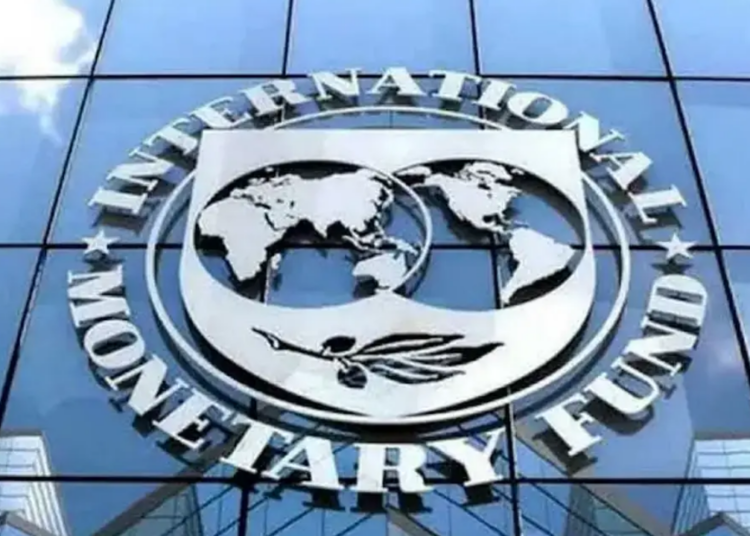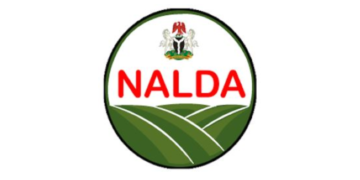The Executive Board of the International Monetary Fund (IMF) has concluded the Article IV consultation with Nigeria, as it observed that the country missed the gains of rising oil prices.
It warned that the country’s oil sector faces downside risks from possible production and price volatility.
The Executive Directors agreed with the thrust of the staff appraisal as they welcomed the broadening of Nigeria’s economic recovery but noted that the opportunity to reap the benefits from higher global oil prices was missed.
Directors therefore highlighted the need for bold fiscal reforms to create needed policy space, put public debt on sound footing, and reduce vulnerabilities.
They urged the authorities to deliver on their commitment to remove fuel subsidies by mid-2023, and to increase well-targeted social spending.
Strengthening revenue mobilization, including through tax administration reforms, expanding the tax automation system and strengthening taxpayer segmentation, and improving tax compliance is also a priority.
In the medium term, Directors recommended modernizing customs administration, rationalizing tax incentives, and raising tax rates to the levels of the Economic Community of West African States (ECOWAS) .
They urged decisive and effective monetary policy tightening to avoid a de-anchoring of inflation expectations.
Noting recent increases in the policy rate, they encouraged the Central Bank of Nigeria (CBN) to stand ready to further increase the policy rate if needed, and to implement additional actions, including fully sterilizing Central Bank financing of fiscal deficits and phasing out credit intervention programs.
Strengthening the CBN’s independence and establishing price stability as its primary objective is critical. Directors also urged the authorities to finalize securitization of the CBN’s existing stock of overdrafts and emphasized that the CBN’s budget financing should strictly adhere to the statutory limits.
Directors encouraged a continued move toward a unified and market-clearing exchange rate by dismantling various exchange rate windows at the CBN.
Providing clarity on exchange rate policy would help boost investor confidence, quell capital outflow pressures, and rebuild buffers .
They welcomed Nigeria’s intention to participate in the African Continental Free Trade Agreement.
Directors further welcomed the resilience of the banking sector and encouraged increased vigilance given potential risks associated with dynamic retail credit growth. They also emphasized the need to enhance the effectiveness of the AML/CFT framework and to avoid public listing by the FATF. Directors welcomed ongoing efforts to foster financial inclusion, including through the use of mobile money with appropriate regulation and supervision.
They again highlighted the importance of improving the performance of the agricultural sector for job creation and food security and urged the authorities to implement governance reforms, including delivering on commitments from the 2020 Rapid Financing Instrument. Improving transparency and accountability in the oil sector is also key to strengthening governance.
It is expected that the next Article IV consultation with Nigeria will be held on the standard 12-month cycle.
According to IMF, Nigeria’s economy has recouped the output losses sustained during the COVID-19 pandemic supported by favorable oil prices and buoyant consumption activities. Gross domestic product (GDP) adjusted for inflation has already reached its pre-crisis level and the third quarter of 2022 marked the eighth consecutive quarter of positive growth despite continued challenges in the oil sector.
Growth was estimated at 3 per cent for 2022.
Headline inflation declined in December 2022 for the first time in 11 months, but at 21.3 per cent remains high driven by elevated international food prices, large parallel market premiums and monetary policy accommodation.
While the Central Bank of Nigeria, CBN, raised the Monetary Policy rate (MPR) by a cumulative 500 basis points in 2022 and another 100 bps in January 2023, inflation remains above the MPR.
Despite rising oil prices, the federal government fiscal deficit is estimated to have widened further in 2022, mainly due to high fuel subsidy costs. While the current account is estimated to have improved in 2022, foreign currency reserves declined amidst capital outflow pressures.
Notwithstanding the authorities’ success in containing and managing the COVID-19 infections, socio-economic conditions remain difficult. The spillover effects of the war in Ukraine, which have been transmitted mainly through higher domestic food prices, worsened the scarring effects of the pandemic, particularly on the most vulnerable—with Nigeria being among the countries with the lowest food security.
The near-term outlook faces downside risks, while there are upside risks in the medium term.
Higher international food and fertilizer prices and continued widening of the parallel market premium could culminate in the de-anchoring of inflation expectations. The oil sector faces downside risks from possible production and price volatility, while climate-related natural disasters (e.g., floods) pose the same risks to agricultural production.
Further widening in sovereign premia could increase debt servicing costs. In the medium term, there are upside risks from a potential stronger reform momentum and a larger-than-expected rebound in oil and gas production.
They underscored near-term downside risks arising from elevated inflation, high debt-servicing costs, external sector pressures, and oil sector volatility.
Looking ahead, Directors recommended decisive fiscal and monetary tightening to secure macroeconomic stability, combined with structural reforms to improve governance, strengthen the agricultural sector, and boost inclusive, sustainable growth.Moreover, Wabba stressed that, “since Covid-19, workers since 2020 have beginning to witness tremendous changes whereby workers have been made to work from long distances.”
According to him, “as we progress into the fifth industrial revolution, there will be challenges brought about by these new forms of work. This means that we must scale up the issue of social protection to all workers regardless of where they work. We must find ways of expanding the social protection cover to ensure that all of them are protected because they are citizens and they deserve to have a means of livelihood.
“We do not want anyone to lose their job to robots on account of technology. As a result, we are working hardly for registering new unions, including the informal sector and engaging more employers to see need for improved working conditions, protection of workers’ rights for their fruitful contribution to their employers.”
In his welcome address, the national president of NECA, Mr Taiwo Adeniyi, explained that, the event was meant to further smoothen industrial peace, which is master key to development and workers’ productivities, since digitalisation is taking over.





